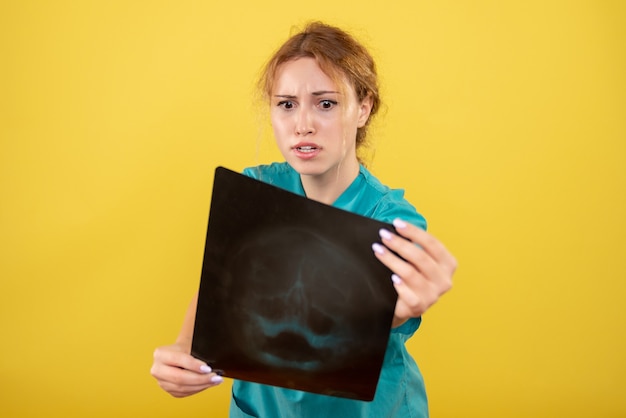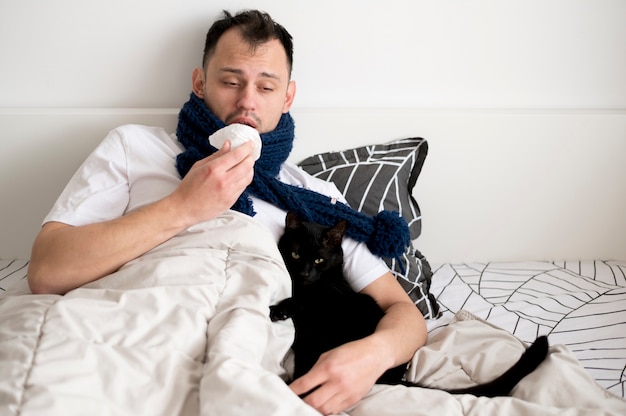When Your Pet Swallows Something: Foreign Body Surgery Explained

When Your Pet Swallows Something: Foreign Body Surgery Explained
When your dog or cat suddenly gulps down a toy, sock, or another foreign object, panic can set in fast. You may wonder if you should wait, induce vomiting, or rush to the nearest emergency vet. In these urgent moments, knowing your options and understanding the process of pet foreign body surgery can make all the difference. At VetCheck Pet Urgent Care in Fishers, IN, our veterinary team is dedicated to providing immediate, compassionate care when your pet swallows something dangerous. We offer rapid diagnostics and safe foreign body removal surgery, designed to help pets from Fishers and surrounding communities recover quickly and comfortably.
In this guide, we will walk you through the warning signs of foreign object ingestion, what causes pets to eat non-food items, how our veterinarians diagnose and treat these emergencies, and what steps you can take at home to help prevent future incidents. We will also explain when it is absolutely necessary to seek emergency veterinary care. With walk-ins always welcome and no appointment needed, VetCheck Pet Urgent Care is here for you during nights, weekends, and whenever your regular veterinarian is unavailable. If you are searching for pet foreign body surgery in Fishers, IN, or need an emergency vet near me, our urgent care team is ready to help.
For more on how our team handles these emergencies, visit our page on emergency and urgent care for pets.
Recognizing the Problem: Signs Your Pet Swallowed Something Dangerous
Knowing when your pet has swallowed a foreign object can sometimes be straightforward, especially if you witness the incident. However, pets are masters at hiding discomfort, and not every ingestion is immediately obvious. Recognizing the early signs can be crucial for timely intervention, especially if you are searching for pet foreign body surgery near me or worried that your dog ate something dangerous.
Common Symptoms of Foreign Body Ingestion
Warning signs to watch for include sudden vomiting, a lack of appetite, or repeated attempts to vomit without producing anything. You may notice abdominal pain, which can appear as restlessness, whining, or a hunched posture. Other symptoms include diarrhea, lethargy, drooling, or visible discomfort when your pet's abdomen is touched. In some cases, you may see your pet pawing at their mouth or throat. For dogs or cats that have ingested string or ribbon, you might notice material protruding from the mouth or rectum.
If you suspect your pet has swallowed something dangerous, it is vital not to wait for symptoms to worsen. Some objects can cause life-threatening blockages or perforations in a matter of hours. Immediate evaluation by an urgent care vet near me, such as the veterinary professionals at VetCheck Pet Urgent Care in Fishers, is the safest course of action.
Why Do Pets Swallow Foreign Objects? Understanding the Causes
You may wonder why pets seem drawn to eating things they should not. The reasons for foreign object ingestion vary by age, species, and individual temperament. Puppies and kittens are naturally curious and tend to explore their environment with their mouths, making them especially prone to swallowing toys, socks, or household items. Adult dogs may ingest foreign objects out of boredom, anxiety, or hunger. Some breeds are particularly prone to this behavior, including retrievers and terriers.
Cats, on the other hand, often swallow string, hair ties, or small toys. This can sometimes be linked to playful hunting instincts. Occasionally, underlying medical conditions such as gastrointestinal issues or nutritional deficiencies can contribute to pica, a condition where animals crave and consume non-food items.
Environmental factors also play a role. Homes with small children, accessible trash cans, or cluttered play areas increase the risk of accidental ingestion. The changing seasons in Fishers, IN, may bring new hazards, such as holiday decorations or gardening supplies, which can pose a danger to curious pets.
Understanding these risk factors allows both pet owners and veterinarians to be proactive in preventing incidents and quickly recognizing when your dog ate something dangerous or your cat may have ingested a harmful object.
How Foreign Body Surgery Is Performed: What Pet Owners Can Expect
When your pet arrives at VetCheck Pet Urgent Care with a suspected foreign body ingestion, our veterinary team begins with a thorough examination and rapid in-house diagnostics. Using advanced in-house diagnostic testing, we can quickly assess your pet's condition. This may include bloodwork to check for dehydration or infection, as well as x-ray imaging to locate the object and determine its size, shape, and position.
The Surgical Process
If the foreign object is causing a blockage or poses a risk of perforating the intestines, surgery is often necessary. Pet foreign body surgery in Fishers, IN, typically involves general anesthesia and a sterile surgical environment. The veterinarian will make an incision in the abdomen to access the stomach or intestines, carefully removing the object while minimizing trauma to the surrounding tissues. In some cases, if the object is lodged in the esophagus or mouth and can be safely retrieved without surgery, our team may use endoscopic tools for removal.
After the object is removed, the site is examined for any damage or infection, and the area is sutured closed. Your pet will be closely monitored as they recover from anesthesia, with pain management and supportive care provided throughout their stay. Full or partial day hospitalization is available as needed to ensure a smooth recovery.
Recovery and Aftercare
Most pets recover well from foreign body surgery, especially when treated promptly. After returning home, you will receive detailed instructions for monitoring your pet, managing pain, and gradually reintroducing food and water. It is normal for pets to be tired or sore for a day or two, but ongoing vomiting, lethargy, or loss of appetite should be reported to your veterinarian immediately.
For a more comprehensive overview of the entire process, explore our dedicated page on foreign body surgery for pets.
Prevention and Home Care: Keeping Your Pet Safe
While not every foreign body incident can be prevented, there are practical steps pet owners can take to reduce the risk. Supervision is key, particularly with puppies, kittens, or pets prone to chewing. Keeping small objects, toys with detachable parts, and string-like materials out of reach can go a long way. Regularly inspect your pet’s toys for signs of wear and replace any that are broken or fraying.
Providing appropriate chew toys and engaging your pet with interactive play can satisfy their natural urges to chew or hunt. For pets with a history of pica or repeated ingestion, discuss potential underlying causes with your veterinarian. Addressing issues such as boredom, anxiety, or dietary imbalances can help curb this dangerous behavior.
If your pet does swallow something, do not attempt to induce vomiting without veterinary guidance. Some objects can become lodged in the throat or cause additional harm if brought back up. Instead, contact an urgent care veterinarian near me as soon as possible.
When to Seek Veterinary Care: Acting Quickly Makes a Difference
Prompt action is essential when dealing with foreign body ingestion. You should seek immediate veterinary care if you witness your pet eating a non-food item, notice any of the symptoms discussed earlier, or suspect that your dog ate something dangerous. Delaying treatment can lead to complications such as intestinal blockage, perforation, or severe infection.
VetCheck Pet Urgent Care in Fishers, IN, is open during evenings, weekends, and holidays, providing immediate access when your regular veterinarian is unavailable. Walk-ins are always welcome; no appointment is needed. If you are searching for a 24-hour vet near me during an emergency, our veterinary professionals are ready to help your pet with urgent conditions, including foreign body surgery, vomiting, and other ingestion-related emergencies. For additional information on related symptoms and care, you can visit our page on vomit and diarrhea in pets.
When in doubt, it is always safer to have your pet evaluated by a professional. If you are unsure, the Pet Poison Helpline (available at Pet Poison Help Line) is a valuable resource for immediate advice regarding potential toxins or ingestion events.
Compassionate, Immediate Care for Pet Foreign Body Emergencies in Fishers, IN
Foreign body ingestion is a distressing experience for both pets and their families. At VetCheck Pet Urgent Care, we understand the anxiety and urgency that come with these situations. Our veterinary team provides fast, expert diagnostics and pet foreign body surgery in Fishers, IN, with the goal of restoring your pet’s health and your peace of mind as quickly as possible.
If you ever find yourself searching for an emergency veterinarian near me or urgent care vet near me, remember that our clinic is open when you need us most. Walk-ins are always welcome; no appointment is necessary. Our Fishers location is equipped to handle urgent ingestion emergencies and many other acute conditions, so you never have to wait for help when your pet is in distress.
For more details on how we approach these cases, visit our page on emergency and urgent care for pets. If you believe your pet may need foreign body removal surgery or has swallowed something dangerous, call us right away at (317) 572-7557 or come directly to our Fishers, IN location. Your pet’s safety and comfort are our top priorities, and our entire veterinary team is here to support you every step of the way.
Remember, when seconds count, VetCheck Pet Urgent Care in Fishers is your trusted solution for pet foreign body surgery and emergency care. Walk in anytime and let us help your pet get back on the path to wellness.
















